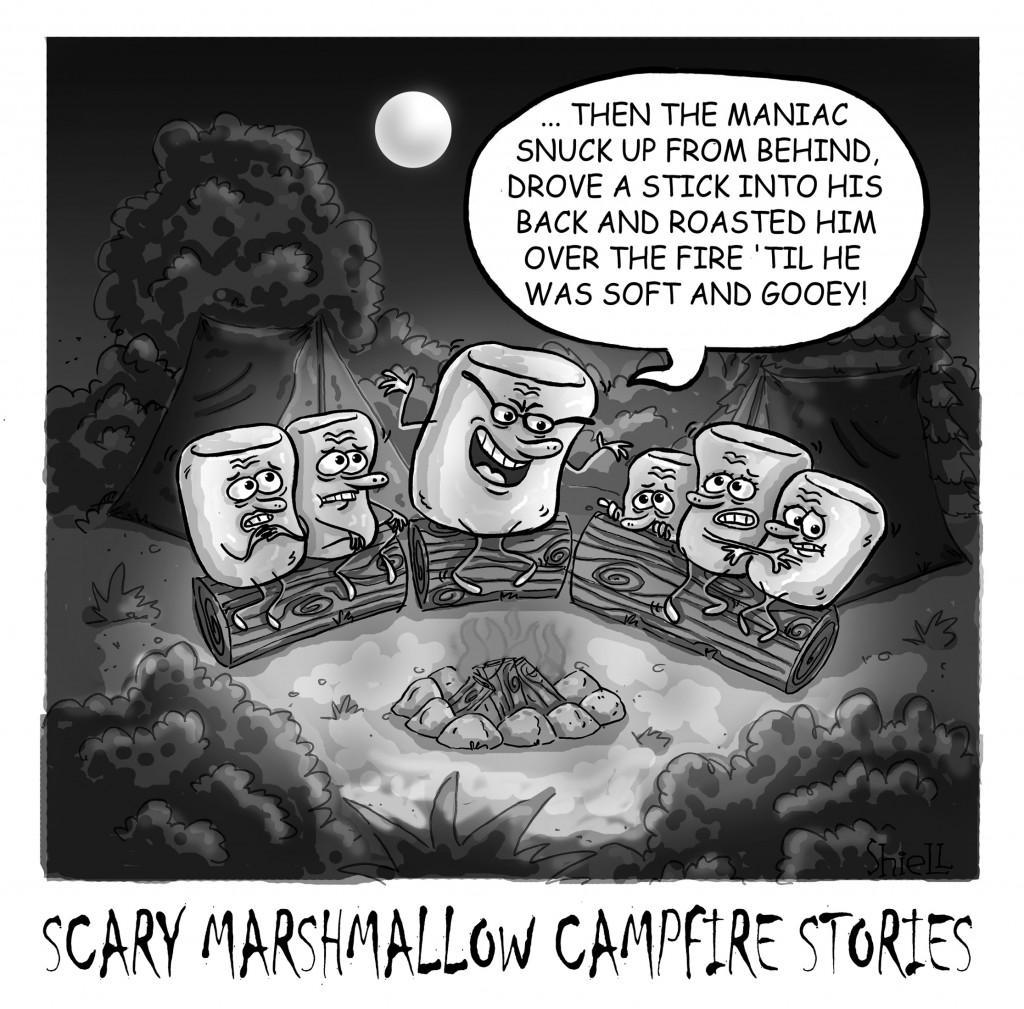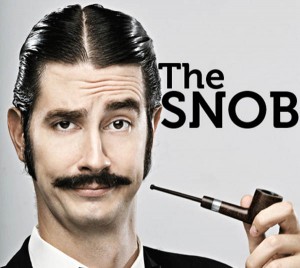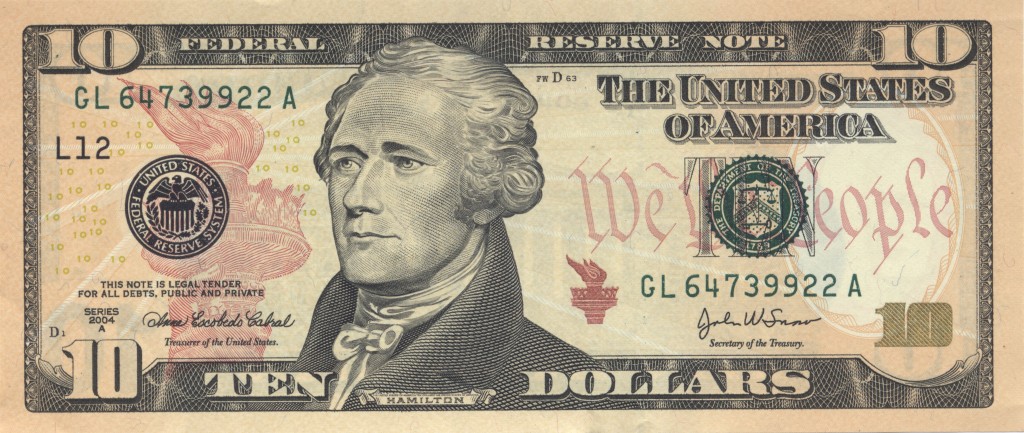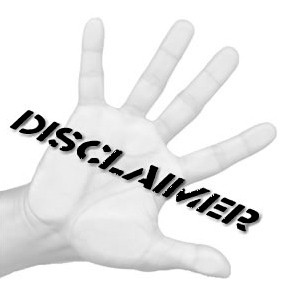 I used to sign up for the “Word of the Day” type emails (of which I would read a couple each month and trash the rest). I also used to work the vocabulary test in Reader’s Digest to find out what kind of wordsmith I was. Truth is, I am a writer, so words DO fascinate me. However I’ve learned an important lesson about unknown, Übereclectic words: they make for Übereclectic, unknown writing.
I used to sign up for the “Word of the Day” type emails (of which I would read a couple each month and trash the rest). I also used to work the vocabulary test in Reader’s Digest to find out what kind of wordsmith I was. Truth is, I am a writer, so words DO fascinate me. However I’ve learned an important lesson about unknown, Übereclectic words: they make for Übereclectic, unknown writing.
 Great stories are told using the simplest words possible. In fact, I am tempted to say that the equation is more of an inverse: your storytelling skills in many cases increase exponentially as you learn to use simpler words. Show the story don’t tell the story. Right?
Great stories are told using the simplest words possible. In fact, I am tempted to say that the equation is more of an inverse: your storytelling skills in many cases increase exponentially as you learn to use simpler words. Show the story don’t tell the story. Right?
I saw a quote from an editor the other day that used a word (let’s say for the sake of the story it was “surfeit”—I don’t want to name the editor or use the same word because it’s not important). The next statement was “And if you don’t know what ‘surfeit’ means, you need an editor.” I’m not going to go so far as to say the editor claimed you needed HIM, but the implication was clear: I know that word so I can edit your writing and make it better.
Horse pucky.
 This editor suffers from what I call Word Snobbery (a condition Sarah Palin assured the GOP the Germanic Dutch call Übermenschish Vocabularistic Syndrome or ÜVS).
This editor suffers from what I call Word Snobbery (a condition Sarah Palin assured the GOP the Germanic Dutch call Übermenschish Vocabularistic Syndrome or ÜVS).
What it means to simple writers like you and me is that some schnutzes think knowing words that no one else (e.g. readers) know is some kind of badge of honor and qualifies a person to edit your work (and I suppose create work, though I’d hate to see it).
Now again, I’ve admitted to being fascinated with words. I’ve even blogged about “favorite” words. The funny thing is a lot of my favorite words are fairly common.
Plume.
Trepidation.
Koala.
Surfeit. (Just kidding. I had to look that one up. It means “excessive”. As in a surfeit of word snobbery.)
I also need to confess to a love of adding “Über” to anything (but only if I can find a way to use the umlauts, another very cool word, although not all that common).
 Douchey word snobs aside, as a writer, don’t you ever, EVER fall into the trap of using a ten dollar word when a one dollar word will do (I know, the saying used to be in cents but come on, who even uses loose change since the invention of Coinstar?). Beginning writers are especially tempted to keep ye ole thesaurus close at hand. Don’t do it. I’m not saying a thesaurus doesn’t have its place. I have a terrible memory and I many times use mine to find that word that’s on the tip of my tongue. (In such cases I quell the urge to use a much more fascinating and unknown word in the list.) Seriously, it will ruin your writing. You CAN tell your story (and tell it much, much better) using words everyone can understand.
Douchey word snobs aside, as a writer, don’t you ever, EVER fall into the trap of using a ten dollar word when a one dollar word will do (I know, the saying used to be in cents but come on, who even uses loose change since the invention of Coinstar?). Beginning writers are especially tempted to keep ye ole thesaurus close at hand. Don’t do it. I’m not saying a thesaurus doesn’t have its place. I have a terrible memory and I many times use mine to find that word that’s on the tip of my tongue. (In such cases I quell the urge to use a much more fascinating and unknown word in the list.) Seriously, it will ruin your writing. You CAN tell your story (and tell it much, much better) using words everyone can understand.
And you editors out there: you should not even OWN a thesaurus. Okay, one, but only for personal fun.
Knowing unknown words is a hobby, not a job.
~~~~~~~~~~~~~~~~~~~~~~~~~~~~~~~~~~
The blank page is dead…long live the blank page.
~~~~~~~~~~~~~~~~~~~~~~~~~~~~~~~~~~
 Author known to use spontaneous satire, sarcasm, and unannounced injections of pith or witticisms which may not be suitable for humorless or otherwise jest-challenged individuals. (Witticisms not guaranteed to be witty, funny, comical, hilarious, clever, scintillating, whimsical, wise, endearing, keen, savvy, sagacious, penetrating, fanciful, or otherwise enjoyable. The Surgeon General has determined through laboratory testing that sarcasm can be dangerous, even in small amounts, and should not be ingested by those who are serious, somber, pensive, weighty, funereal, unsmiling, poker-faced, sober, or pregnant.)
Author known to use spontaneous satire, sarcasm, and unannounced injections of pith or witticisms which may not be suitable for humorless or otherwise jest-challenged individuals. (Witticisms not guaranteed to be witty, funny, comical, hilarious, clever, scintillating, whimsical, wise, endearing, keen, savvy, sagacious, penetrating, fanciful, or otherwise enjoyable. The Surgeon General has determined through laboratory testing that sarcasm can be dangerous, even in small amounts, and should not be ingested by those who are serious, somber, pensive, weighty, funereal, unsmiling, poker-faced, sober, or pregnant.)



*fingers hovering over keyboard, ready to pounce…* Okay, Rob, I just couldn’t pass this one up. *ahem* This editor, *grin*, agrees with you –simple words, yes; however (isn’t there always one of those?), witticisms aside, that appealing to what ‘everyone understands’ actually serves few. Yes, be fun. Simple words, okay. Just know your audience, regardless of the form of writing. I pray that all those big words (scary for you, are they? 😉 ) don’t go the way of the dinosaur. Cheers, from Canada! @racheledits
Ha, Rachel…okay, okay. Hey, thanks for weighing in.
You know, all kidding aside, there’s really a Part II that needs to be written on this because honestly there are people out there who devour Amanda Hocking (who writes at about an eighth grade level) and others who will read nothing less than Melville, or (sorry, gag) Shakespeare. I think there is a reader (at least one) for every kind of writer. Not sure if that’s a good or a bad thing. (Yes I am, but I am going to remain noncommittal here.)
And no, I have no fear of big words, smartass <-- small (urban) word. 😉 I just know they are pittance in the forming of great writing and storytelling. Same with adverbs. 😀
Eighth grade level? How insulting. What does that even mean? I’ve worked with several grade level metrics before. When implemented on Toni Morrison, Margaret Atwood, Joseph Conrad–many shake out to about a fifth grade level of readability. Those metrics can’t measure subject matter. Criticize if you want, but can we please refrain from insulting a book by insulting its audience?
Frankly, where do you get off being snide about Amanda Hocking anyway? Are your books simply biding their time until they take off like wildfire, making you a millionaire? Your tone to other writers that you consider inferior is so snide–and your tone about yourself is presumptuously self-aggrandizing, masked by this “aw-shucks” facade. Please, spare us. You can’t be humble at one turn and then spin on some other, incredibly successful writer and denigrate their work. Don’t like Amanda Hocking’s work? Write a goddamn critical analysis and put it on your blog. I haven’t read her, but with this, I don’t buy that you did, either. It just sounds like sour grapes.
P.S. I think I may have really insulted eighth graders in there somewhere…:(
I agree and disagree on a number of points here. Yes, words should be simple. There is no value in using excessively complicated words. I told one writer I once knew, who frequently used words I had to look up (something that only rarely occurs!) that it was just showing off.
But a writer should have a thesaurus. Why? to avoid word repetition and to help when trying to find words and adjectives. You want to use specific words – oak door, instead of wooden door, etc., and sometimes you just can’t think of the word you want – even though you may otherwise know it! I recently wrote a story set in fog. I very quickly ran out of words for fog, and I had to mention it a lot, and I sure didn’t want to keep using the same word. So… thesaurus. Invaluable.
I use loose change. What’s Coinstar? I’ll assume whatever it is we don’t have it here.
I use a thesaurus (and dictionary), too. But there’s a right way and a wrong way to use one. Repeating words is terrible writing, too, so yes, we need to use the thesaurus to find different wordings (which I mentioned…the trick is to pick another useable, known word, not a word perhaps you didn’t even know before looking it up)! 🙂 And there’s nothing wrong with knowing (and loving) a lot of words. I am rarely stumped by a word, but the point here (as you mentioned, too) is not to fall into the trap of writing above your level (and audience) by searching for words no one knows. : /
P.S. Coinstar is a machine in places like Starbucks and Wal-Marts and supermarkets that counts your bags of loose change, takes a small %, and gives you cash (it actually gives you a receipt to cash in). 😀
There is no way I could ever be a word snob. I never use words I can’t spell. And any word longer than two syllables should be taken out back and shot.
I prefer to string ’em up…hang ’em high, as Clint used to say. 😉
This post reminded me of one of my favourite songs when I was little, take a look, you will enjoy it, but it may go in your head forever: http://www.youtube.com/watch?v=qqjhCgLzaCs
I think this depends on what you’re writing. Big words are a joy, even when I have to look them up, because they make things sound beautiful. That’s why reading a Salman Rushdie novel is like eating a delicious cake.
The massive unusual words are the salted toffee popcorn on top of the cake. Not everyone has a palate that will enjoy salted toffee popcorn. However, for those of us who love it, the popcorn makes the cake an amazing cake. Sometimes when baking a cake to bring into work I have to make a judgement call, shall I add an exciting ingredient, or stick with ordinary chocolate flavour which everyone will like. So sometimes simpler words are good. But advocating the use of simpler language all the time is like saying let’s only ever bake vanilla cupcakes because most people like them. All very well, but some of us like rosemary, olive oil and chocolate loaf cake. Don’t take that away from us.
I enjoy learning new words and eloquent language — when written by a master. If a novice uses a word too big for their writing, it’ll tear the piece apart quicker than you can SAY ” thesaurus”. And I do think as writers we should push ourselves. I always read above my skill level. How else do I become better myself? I won’t, however, subject my readers to my growth spurts. 😉
What I enjoy about a thought-provoking post followed by a civil discussion is that the post can become a point of departure for discovery. Here I believe you’ve arrived at the best refinement of your argument. You weren’t really saying “Don’t use big words” or “Toss out your Thesaurus.” You are cautioning against “sport usage” — the vocabulary equivalent of loveless promiscuity. When a person knows a one-, two-, or five-dollar word in all its nuanced glory, and it’s just the right word in just the right place, it can make a reader deliquesce into a puddle of ecstasy on the spot. (Thanks to Paul Murray, the brilliant author of ” Skippy Dies,” for that one.) If you don’t know it — and I didn’t — can you infer its meaning by my context? That is a graceful way to account for your audience when you don’t know your audience. I don’t know you all, but I’m sure I would like to 🙂
Bravo. The relevance and more importantly insight into EXACTLY what I was saying leaves me near speechless. And the funny thing is, you hit even another great point: context. I did not particularly know the word, but again, yes I did, because of the eloquent context and the perfect placement of the word. Again, BRAVO. And thank you, Susan. 😀
Words are like the symbiotic bacteria we have in our gut to aid in digestion. To learn a word is to become infected by it. I try not to infect others with esoteric word strains. They do no good and can only cause lapses in communication.
GREAT analogy. 🙂
Wow, Rob. I like me a big word now and then, makes me feel shmart. But I also remember when a boss used the word “salient” in everyday convo, years ago. Stuck out like a sore thumb, and we all had to rush to look it up after her pep talk. Now I know it’s probably obvious to you, but hey, public school education. Thanks so much for stirring the pot!
When I was in college, one of my professors kept giving me low grades for “writing too simply.” Finally I got fed up, grabbed a thesaurus, and used the most outlandish, longest, and less-known words in every instance that I could find to do so. Unfortunately, she didn’t like that either. *sigh*
However, editors DO need to know words – how else are we going to tell the author when they are using a word that doesn’t make sense within the context? Editors need to do more than just proofread and check basic grammar, you know. If I didn’t know the differences between the meanings of a large number of words, I would miss a lot of things. I would give some examples, but sadly my brain is still having a nap and I can’t remember any specific ones at the time; I just know that in almost every manuscript I edit, I’ll find at least one word for which I have to make the comment, “Don’t you mean….?” A thesaurus and a dictionary are as intrinsic to the work of a good editor as is the Chicago Manual of Style. That doesn’t mean we need to use them, but it is important to know them. I mean, you wouldn’t want to use surfeit when you mean plethora, would you? That would just be embarrassing… Also, with e-readers and their lovely dictionary, one can look up anything one doesn’t understand. Well, with Kindle, anyway – Nook’s dictionary leaves a bit to be desired.
That said, yes, an author does definitely need to show and not tell. And write accessibly. But that doesn’t mean you can’t occasionally use one of those lovely words that gives so many of us pleasure – just be certain it’s used properly and in the correct context, and don’t go crazy with it.
Nor do I contradict a thing you’ve said here, other than to use the element of exaggeration in saying an editor should not have a thesaurus—to attempt humor. Of course an editor can never know enough words. It is their JOB.
And I couldn’t agree more that a lovely word placed judiciously is one of my favorite surprises of all in a great book.
But the word better fit the writer and his or her ability, storyline, context, etc. Or it’s not lovely at all. It’s contrived.
I’m at the point in my life where memory issues have kicked in and I can’t remember new (big and fancy) words or their meanings even if I try. So, the problem is solved for me, in a way. I love umlauts, too. Back in the day of the printed telephone directory, I tried to get the phone company to use them in my telephone listing, but they claimed they were incapable of doing so. Harumph.
I used to think umlauts were the skirt-length pants for women. Just kidding. Sort of.
I have only one interest – the right word. I couldn’t live without a thesaurus because there are so many moods and tones to a written passage and the right word will convey it. I’m not interested in big or little, just the word the gets closest to what I’m trying to express.
Amen.
You’re revealed as a snobby douche by the utterance “I know, the saying used to be in cents but come on, who even uses loose change since the invention of Coinstar?”
Go.
I can mostly agree with this, although I’d like to point out that sometimes people use big words really without thinking, just because they’re the best word to use in context (but maybe not the best one for the audience!). It sort of depends what your background is. I was a biology major, and I got so used to tossing around huge, obscure words on a daily basis that it took a conscious effort not to do the same thing in my writing (since I write horror and fantasy though it was fairly easy to avoid more technical jargon). Sometimes I think people put huge words into a piece not because they want to sound smart, but simply because it was the word they would naturally use.
Really, it’s about using the right word in the right context. I don’t think it’s wrong as a reader to occasionally have to reach for a dictionary (or Google) when I come across a word I don’t know. But unless I’m reading a scientific paper about [insert bio mumbo jumbo here] I don’t want to have to be doing that every other sentence.
I don’t mostly agree with what you said, I TOTALLY agree! 🙂 Firstly, the “douche” part was mostly joking (although we all know there are people who love to flex their vocabulary and think it impresses the ladies). And I LOVE a well-placed exotic word…as you pointed out, if it’s in context, I’ll probably figure out what it means, I love learning new words, and yes, even if I have to Google it or grab a (perish the thought) paper dictionary ( 😉 ) I’m more than okay with that. This really sprang from the comment I read by the one particular editor who threw a strange word out there and tried to use that non sequitur argument to agree with me in saying that all writers need an editor. The other point is not to purposefully use bigger words than you’re writing sustains thinking it will improve your quality and/or your standing, because it clearly won’t.
I grew up on Stephen King and wholeheartedly agree on a reasonably simple vocabulary. My dialogue tends to be the simplest, though some uncommon and succinct words to justify their inclusion. I’m not sure if what I just said flows with your article or defies it. Anyhow, I enjoyed the article.
Totally “flows with”—and thanks for the comment, BTW! Here’s the thing: if you read a few of my other comments, and recall from earlier in the blog, I LOVE WORDS. And there is nothing better than a well-placed eloquent word (whether I have to look it up or not), as long as it fits the writer’s style, story, etc. King didn’t need any ten dollar words. He’s not even a GREAT writer (his words, not mine). The man is perhaps the greatest STORYTELLER of all freaking time (he’s also an assholio, check out my blog “A Famous Encounter Revisited” or some such name. Aaanyway, he was my hero, too, and I grew up on him. For him to stuff “scupper” into a sentence would be like pounding a round peg into an octagonal hole. He never needed that, ever. My biggest point was supposed to be to young/beginning writers: don’t overreach. A lot of people will tell someone to use “bigger” words/vocabulary to “enhance” their writing. Clearly it doesn’t. Thanks again for the great comment. 🙂
[…] that comes your way? Image Share this:FacebookTwitterTumblrPinterestLike this:LikeBe the first to like this. Categories: […]
[…] is partially inspired and in response to R.S. Guthrie’s post last week about being a “word snob“. Let me note UP FRONT that I’m not downing what Rob is saying; in fact, I agree, and […]